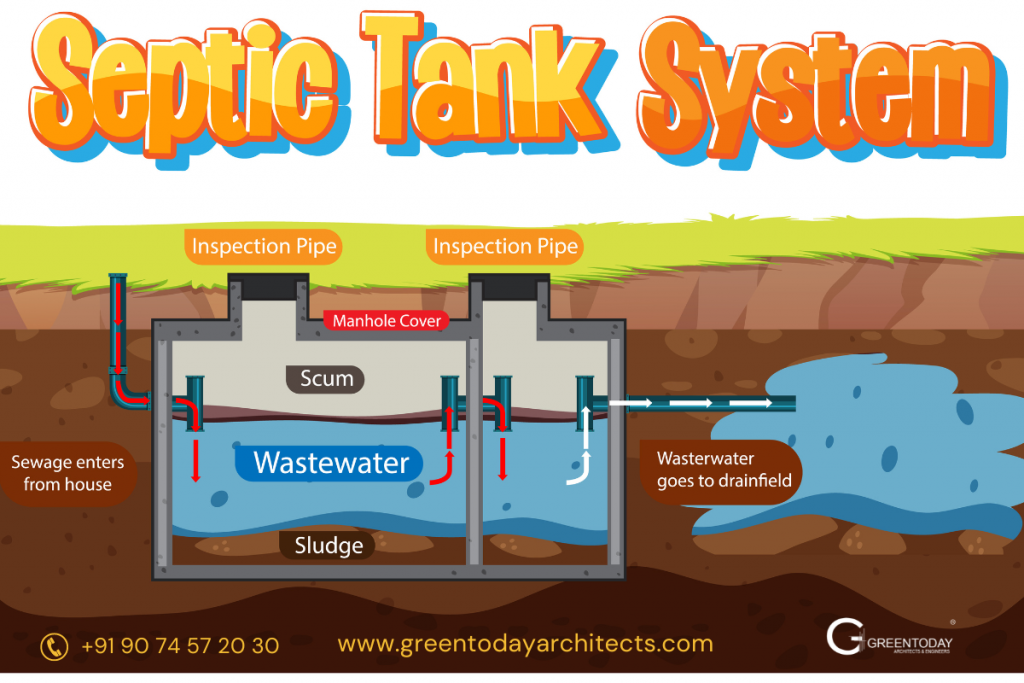The Essential Guide to Septic Tank System: Ensuring Cleanliness and Health at Home
Septic Tank System play a vital role in flushing and cleaning the waste and keeping our abode safe and tody for a perfect living. It not only ensures cleanliness but is vital for the general health of the inmates dwelling in the house or apartment.
Septic systems generally comprise a tank where wastewater undergoes treatment, separating solids from liquid waste, while microorganisms decompose organic materials. The treated wastewater then progresses into a drain or leach field, composed of perforated pipes, allowing it to either evaporate or percolate into the soil for further filtration and absorption.
A top-notch septic system serves as a self-sufficient solution for filtering household wastewater for around 20 years, freeing you from dependence on local infrastructure. However, before diving into installation, it’s imperative to meticulously assess crucial factors. By diligently adhering to these recommendations, you can safeguard the cleanliness and functionality of your pipes and tank, ensuring seamless operation for years to come.


